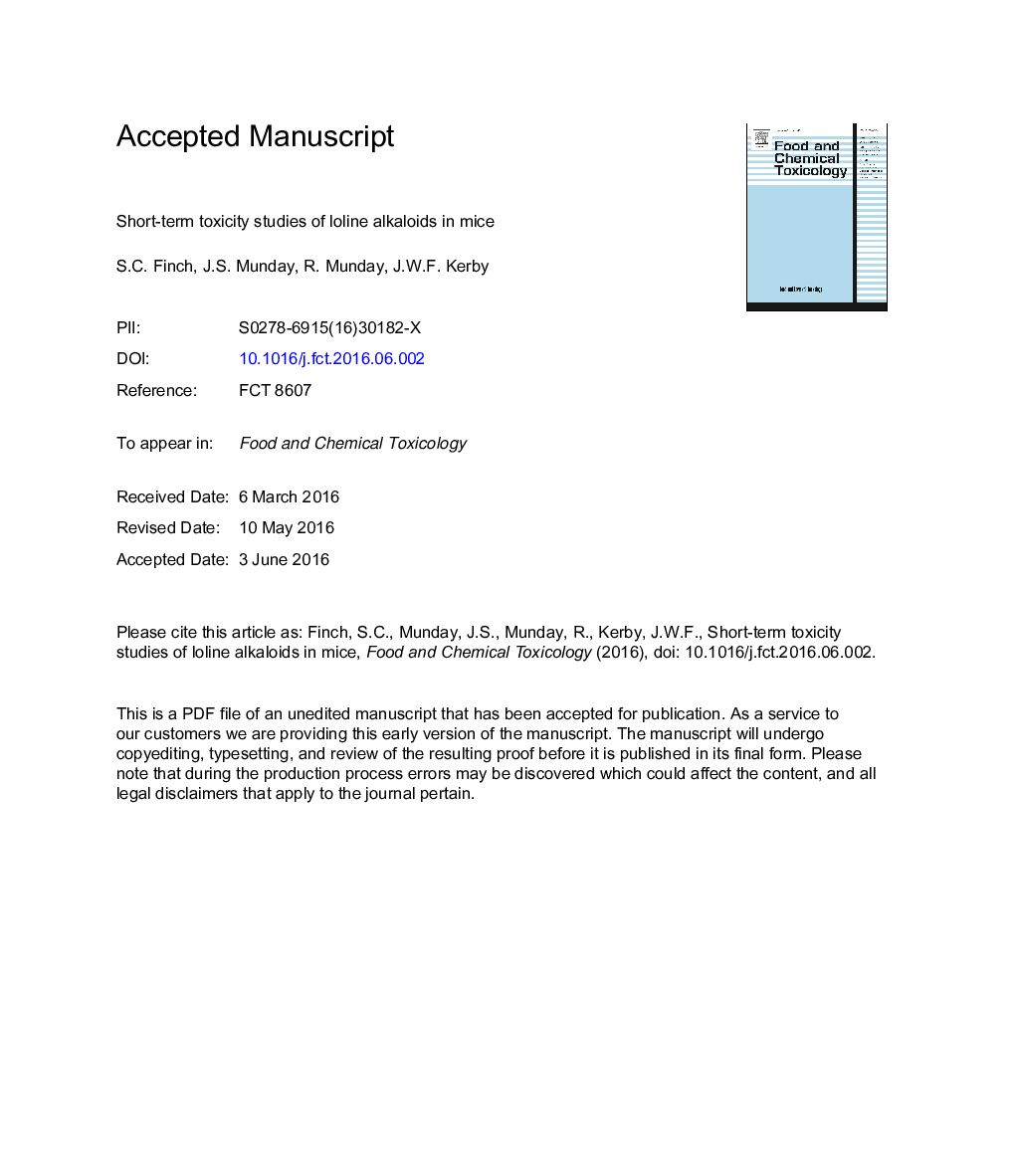| Article ID | Journal | Published Year | Pages | File Type |
|---|---|---|---|---|
| 5849385 | Food and Chemical Toxicology | 2016 | 26 Pages |
Abstract
Epichloë endophytes have been used successfully in pastoral systems to reduce the impact of insect pests through the expression of secondary metabolites. The use of endophytes could be extended to other plant species, such as cereal crops, where the production of bioactive secondary metabolites would reduce the reliance on pesticides for insect control. The success of this approach is dependent on the selection of an appropriate secondary metabolite target which must not only be effective against insect pests but also be safe for grazing and monogastric animals. The loline alkaloids have been identified as possible target metabolites as they are associated with potent effects on insects and low toxicity to grazing animals. The purpose of the current study was to generate toxicological data on the loline alkaloids in a monogastric system using mice. Male and female mice were fed 415Â mg/kg/day total lolines for a 3-week period. The loline treatment caused no statistically significant effect on gross pathology, histology, haematology, blood chemistry, heart rate, blood pressure or motor coordination. Reduced weight gain and food consumption were noted in the loline groups during the initial stages of the experiment. This experiment raises no food safety concerns for the loline alkaloids.
Keywords
Related Topics
Life Sciences
Agricultural and Biological Sciences
Food Science
Authors
S.C. Finch, J.S. Munday, R. Munday, J.W.F. Kerby,
